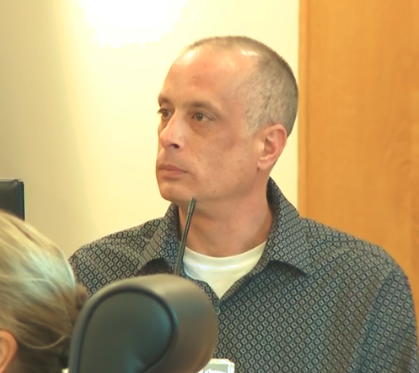By NANCY WEST, InDepthNH.org
CONCORD – Merrimack County Commissioners want Attorney General Gordon MacDonald to clarify his request that they hire an investigator to determine if Sheriff Scott Hilliard should be placed on the highly secretive “Laurie List” of police with credibility problems.
Hilliard, 58, was convicted last month of aggravated driving while intoxicated and an open container violation.
Commissioner Peter Spaulding said the Commission has no authority over elected officials such as Hilliard and wondered why the Attorney General’s Office didn’t conduct the probe themselves.
“I’m bewildered by this,” Spaulding said Sunday. “Our concern is why is the attorney general not doing this.”
Spaulding said the commission has asked to meet with the attorney general to clarify the request after receiving a letter from MacDonald dated Jan. 24.
“I have no idea who we would hire. We sent a letter back asking for clarification as to what our role is or whether it is even appropriate for us to do it. We don’t have the authority,” Spaulding said.
Hilliard was sentenced to five days in jail and his driver’s license suspended for as long as 18 months. After he was found guilty last month, Republican Gov. Chris Sununu called on Hilliard to immediately resign, which he refused to do. Hilliard, also a Republican, has not stated publicly whether he will appeal.
“I’ve never heard of this in my public life,” said Spaulding.
MacDonald explained in the letter that the Laurie List, now called the Exculpatory Evidence Schedule, contains sworn law enforcement personnel whose names must be turned over to the defense in criminal cases if their actions would be exculpatory evidence, that is favorable to the defense, or considered impeachment material.
Attempts to reach MacDonald and Hilliard were unsuccessful on Sunday.
The names of the 275 officers are redacted from the public list and are the subject of an ongoing lawsuit to have them made public.
The U.S. Supreme Court case Brady v. Maryland, the New Hampshire case State v. Laurie, and other case law make clear that convictions may be lost if exculpatory evidence isn’t turned over and prosecutors could be disciplined in egregious cases.
MacDonald said criminal conduct on the part of a law enforcement officer, or a deliberate lie are examples of conduct that constitutes exculpatory evidence.
“Based on Sheriff Hilliard’s criminal conviction, as well as evidence introduced during the course of his trial, it appears that Sheriff Hilliard has engaged in conduct that is potentially exculpatory and would require his placement on the Exculpatory Evidence Schedule,” MacDonald said.
Before that can happen, according to MacDonald, an internal investigation must be conducted into the conviction and Hilliard’s conduct during the criminal investigation, and a conclusion reached whether it constitutes exculpatory evidence.
Investigations are usually conducted by an officer’s department with the agency head making the final decision to place an officer on the list.
“That process is frustrated when it is the head of the law enforcement agency who has engaged in the conduct being review,(sic)” MacDonald wrote.
In such cases, MacDonald said his office recommends that the civilian governing body with oversight of the agency retain an outside consultant with the “requisite qualifications to conduct the internal investigation.
“As such I am requesting you take the necessary steps to have an internal investigation conducted into Sheriff Hilliard’s conduct which led to his conviction … and to notify my office of the outcome of that investigation, and specifically whether Sheriff Hilliard will be placed on the EES,” MacDonald told the commissioners.
While the investigation is pending, MacDonald asked them to “take steps to immediately notify all relevant prosecuting agencies that Sheriff Hilliard has been convicted of a criminal offense and that there is an ongoing internal investigation into his conduct including his veracity during the investigation into his conduct during the night of his arrest.”
The Exculpatory Evidence Schedule has been secretive since 2004 when prosecutors began keeping lists as so-called “Laurie Lists.” The list’s existence only became widely known to the public in 2012 by the news media.
More Laurie List stories an be found here: https://indepthnh.org/category/dishonest-police/
It has been a source of controversy since then because the names of the police officers on the list have been redacted and only scant information about why they were placed on the list has been released.
In a public records lawsuit filed by ACLU-NH, the New Hampshire Center for Public Interest Journalism and other news outlets across the state, Hillsborough County Superior Court Judge Charles Temple ruled in April of 2019 that the list is a matter of public record.
However, Attorney General MacDonald appealed that decision to the New Hampshire Supreme Court where a ruling is expected sometime this year.





